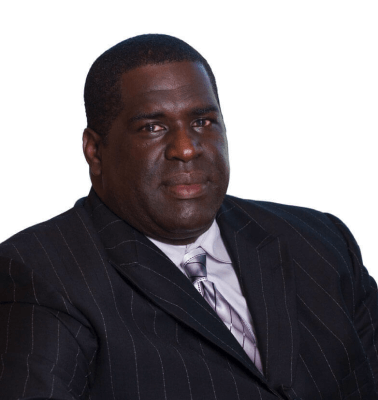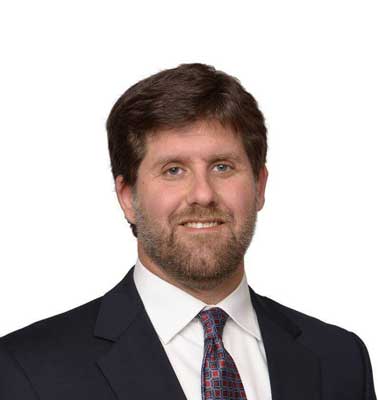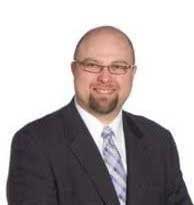Bay Area Professional and Small Business Licensing
ACCUSED OF OPERATING WITHOUT A LICENSE IN NORTHERN CALIFORNIA?
Most of our clients are honest professional people who work hard and want to keep their record clean. Our attorneys are well versed in employment and business licensing offenses. We handle both felony and misdemeanor offenses.
What offenses can professionals, small business owners, and tradespeople be charged with?
Various industries and professions are regulated in California under the Business and Professions Code. The Code deals with the protection of consumers and the licensing of certain professionals, small businesses, and tradespeople.
The aim of these laws and regulations are to protect the public from unqualified workers and unscrupulous business practices. However, many people who are not a danger to the public are caught up in investigations and risk losing their businesses or way of making a living because of criminal charges. At Summit Defense Criminal Attorneys, we know how demanding it can be to work for yourself, or to run a small business. It is hard to stay on top of everything, and to maintain a regular cash flow that lets you meet all the demands of running your business. In difficult times, it is understandable that someone may let a license renewal slip or forget to submit an application for registration.
Summit Defense Criminal Attorneys want to help small businesses to continue operating wherever possible, and ensure that hardworking professionals and tradespeople do not face a permanent criminal conviction. Where it is alleged that our clients have violated the licensing or registration requirements, or other aspects of the Code, we can do things such as:
- Seek to have the matter dealt with internally by the industry oversight body;
- Present mitigating circumstances to persuade the DA that our client is not a danger to the public, and to dismiss the case;
- Negotiate a civil compromise that provides restitution to the affected customer, and satisfies the DA that charges do not need to be filed;
- Seek to have the case dealt with as an infraction, where applicable, so as to avoid a permanent criminal record.
Licensing and registration
The Business and Professions Code makes it an offense for certain businesses and individuals to operate without a license. These licenses are usually granted and administered by trade and profession specific bodies, which often fall under the Department of Consumer Affairs – for example, in the case of automotive repairs, dealers must register with the Bureau of Automotive Repair (BAR).
Consider the example of an owner of an automotive repair dealership initially registered to operate when he opened the store, in May 2013. However, if he failed to renew that registration by the end of May 2014, he would be unregistered. If he continued to operate – to accept payment for making repairs to cars – then he would be in violation of Section 9884.6 of the Business and Professions Code.
Fraud and dishonesty offenses
Apart from not holding a license, or having a license lapse, businesses and tradespeople are sometimes investigated in relation to fraud or dishonesty offenses. These usually fall under the California Penal Code, and can include offenses such as fraud, theft, forgery, and perjury.
For example, consider a contractor who does home repairs. He is properly licensed, as required by law. However, he takes advantage of some elderly people who are living alone, promising to complete home repairs for them and taking a deposit, but never actually intending to return to complete the work. That would likely be an offense of financial elder abuse under Section 368(d) of the California Penal Code.
Licensing requirements for professionals, small businesses, and tradespeople.
In this section, we will outline the licensing and registration requirements for some professionals, small businesses, and tradespeople in California. We will also discuss some of the common issues that can arise that may lead to investigations or potential criminal charges.
Automotive Repair Dealers
The Bureau of Automotive Repairs (BAR) is responsible for the registration, licensing, and monitoring of all automotive repair dealers in California. The following dealers must be registered or licensed with the Bureau:
- Automotive repair dealers.
- Auto body repair shops.
- Lamp and brake adjusters.
- Official lamp and brake adjusting stations.
- Smog check technicians.
- Smog check stations (whether test only, test and repair, or repair only).
The Automotive Repair Act, as part of the Business and Professions Code, contains the legal requirements for running one of these shops or stations. It requires businesses or individual workers:
- to be registered or licensed at all times when work is performed for payment;
- to renew licenses or registration in a timely fashion;
- to properly display their license or registration details; and
- to abide by any conditions that the Bureau imposes on the license or registration.[1]
The Bureau also has the power to deny, revoke, suspend, or place on probation any license or registration of the business or person who does things such as mislead or defraud customers, not provide customers with the proper paperwork when required, acts in a negligent manner, or does not adhere to acceptable trade standards.[2]
Car Dealers
The California Vehicle Code requires both new and used car dealers to be licensed.[3] The body responsible for the licensing and monitoring of dealers is the Department of Motor Vehicles (DMV). New car dealers are also allowed to sell used cars, but those dealers licensed to sell used cars are allowed to sell used cars only.
To obtain a license to sell cars, the dealer must go through the licensing application process, which includes a background check. If the dealer employs salespeople, they must have a salesperson permit, also issued by the DMV.
Once someone is licensed as a new or used car dealer, there are a wealth of regulations to follow in relation to the dealership, advertising, and the quality of the cars being sold. Car dealers should be careful to follow all of the rules as laid down by the Vehicle Code, as well as in other laws such as the advertising rules set out in the Business and Professions Code.
If you sell cars without a license – apart from your own car – you may be committing an offense. Other violations of the Vehicle Code, such as falsifying vehicle registration or ownership, or defacing or altering the vehicle identification numbers, can also be treated as criminal offenses.
Landscape Architects
The Business and Professions Code also regulates the licensing of landscape architects. The industry body that issues licenses is the California Architects Board, which delegates most of its monitoring authority to the Landscape Architects Technical Committee.
Licenses are issued, after the person has passed a written examination, under Section 5652 of the Code. There are various violations of the Code that subject a person to discipline, such as not using a written contract when agreeing to do work for a customer. These are usually resolved internally by the Board, and can lead to license revocation or suspension.
It is a criminal offense, however, to engage in any kind of landscape architecture work or business without a license.[4] Licensed professionals are responsible for keeping their license up to date, and of keeping the Board informed of their current details. If licensed landscape architects commit any criminal offense, they are subject to both criminal penalties, and also discipline by the Board.
Contractors
The Contractors’ State License Board, within the Department of Consumer Affairs, is responsible for the licensing, monitoring, and discipline of contractors in California. The Board enforces the laws, rules and regulations as set out in Division 3, Chapter 9 of the Business and Professions Code.
The regulation of contractors is intensive – within the enforcement division, the Board engages both enforcement representatives to enforce the rules and regulations, as well as investigators within a Special Investigations Unit. They also have a Statewide Investigative Fraud Team (SWIFT), which conducts undercover stings and construction site sweeps around the state to monitor construction activities.[5] Investigators have the powers of police officers when they are acting in accordance with their powers and duties under the law[6], and although enforcement representatives do not, they can still issue notices for contractors to appear in court[7].
The Board issues licenses to contractors, after completion of an exam or other requirements and the payment of a fee.[8] The Code also empowers the Board to require proof of certain financial and insurance details – for example, financial solvency from individual contractors, and proof of limited liability insurance for partnerships.
Depending on the violation alleged, the Board will enforce either civil remedies under the Code of Civil Procedure, or criminal remedies. It is a misdemeanor offense to work as a contractor, or to operate a contracting business (as an individual, partnership, or corporation), without a valid license. If a second or further offense is committed, the penalties are more severe and include a mandatory jail sentence and fine upon conviction.
It is a felony offense to use another person’s contracting license, or to lead customers to believe you are a licensed contractor when you are not. Finally, there are various other offenses under the Code – such as contracting with another person who is required to be licensed but is not. If you are accused of any offense as a contractor, you should seek expert legal advice from an experienced criminal defense attorney immediately to limit your exposure to the serious penalties proscribed by the Code.
Pest Control
The Structural Pest Control Board, within the Department of Consumer Affairs, regulates those individuals and business that provide pest control services. That includes conducting inspections, preparing reports, fumigating premises, and any other related work.
Pest control operators must be licensed by the Pest Control Board under Division 3, Chapter 14, Article 4 of the Business and Professions Code. It is a violation of the Code to do any pest control or related work without a license.[9] Any violation of the Code can lead to disciplinary action by the Board. Further, it is a criminal offense “to recommend or to perform any pest control corrective work under any contract or agreement” that the operator knows is in excess of what is required to eliminate the condition/pests.[10]
Massage Parlors
The laws relating to the licensing and regulation of massage parlors differ from county to county. In most cities and counties, however, a special permit is needed to operate a massage parlor, or an off premises massage service. For example, in Alameda County, Section 3.24.030 of the Code of Ordinances specifies that a permit to operate a massage parlor must be obtained from the sheriff. On top of that, parlors must abide by all relevant Health Codes, Labor Codes, and Zoning Regulations.
There are also statewide laws in relation the voluntary certification of massage professionals, under Section 4600 of the Business and Professions Code.
Unfortunately, law enforcement authorities often target massage parlors because they believe they are fronts for prostitution. Even if the police do not find evidence of prostitution or other offenses, it is not uncommon for them to seize assets and cash and to accuse the owners of labor code violations and the like. Most massage parlors are lawful small businesses, however, and the people that work there lawful employees. If you own or work in a massage parlor and are the target of police allegations, you should seek legal advice immediately.
Beauty Parlors
All businesses and individuals that engage in hair care, skin care, nail care, and electrolysis are regulated under Division 3, Chapter 10 of the Business and Professions Code. The State Board of Barbering and Cosmetology, under the Department of Consumer Affairs, licenses and monitors all barbers and cosmetologists. They specify training requirements, and can take disciplinary actions against licensees.
It is a criminal offense to operate as a barber or cosmetologist without a proper license, pursuant to Section 7402 of the Business and Professions Code.
How are licensing and registration requirements enforced?
Investigations into small businesses, professionals, and tradespeople usually begin when a consumer makes a complaint to the relevant oversight body within the Department of Consumer Affairs, such as the Bureau of Automotive Repair. For example, a customer may be unhappy with the repairs that were done to her car and believe that the problem was not really fixed. She takes her car to a second dealer to check on the work, and is told that the repairs were not properly done. So, she makes a complaint to the Bureau about the first dealer.
When a complaint is received, the Bureau – or other relevant oversight body, depending on the industry – will investigate. They will determine if the person or business is properly licensed or registered, and in some cases may visit the premises to see how and where the work is being carried out.
In the case of the woman whose car was not properly repaired, the Bureau would check that the dealer was registered. They may then attend the dealership, and see if other legal requirements are being met, and if the dealership is being run in accordance with usual trade practices and work being performed in a workmanlike manner. Alternatively, there are cases where they will send someone in to pose as a customer, to see how the person or business under investigation deals with customers and if work is performed properly. In that kind of investigation, they might take a car in for repairs, see if the dealer agreed to do the repairs for a fee (even if he was not currently registered), and then determine if the work was done properly.
If the Bureau, or other industry body, believes that an offense has been committed and they have evidence of it, they may then choose to take the case to the District Attorney. There are avenues for internal resolution of complaints, but those are usually restricted to more minor cases.
The District Attorney will then examine the evidence in the case, and determine whether to file charges against the individual operator or small business owner.
If you know or suspect that you are under investigation, it is wise to contact an attorney for advice as soon as possible. In many cases, we are able to speak to the investigators and seek to have the matter dealt with before the DA becomes involved. In other cases, however, you may not be aware that you are the subject of a criminal investigation until the final stages, when the DA is involved. At that stage, the intervention of an experienced lawyer can make a huge difference to the outcome of your case. Summit Defense Attorneys are experienced in dealing with cases before charges are filed – we are often able to present mitigating factors, seek an alternative resolution, and persuade the DA to dismiss the case without filing any charges at all.
How can Summit Defense Attorneys help small business owners?
Intervening on your behalf
In cases where licensing and registration are in issue, early intervention can be very successful. As an administrative oversight body regulates most of these small business industries and professions, there is often scope to resolve the matter internally with the assistance of an experienced attorney. And even if the matter has already been referred to the DA, your Summit Defense Attorney can intervene on your behalf.
As we have discussed, the aim of these licensing laws and regulations is to protect the public. In many cases that we defend, however, our client is not a danger to the public at all – rather, they have let their license or registration lapse without renewing it in time, or have made some other mistake when overwhelmed by the demands of running a small business and serving their customers. In those kinds of situations, we are often able to present important evidence and information to the relevant Board, or the DA, to persuade them that it would not be in the interests of justice to proceed with a prosecution.
When we intervene before charges are filed, our experienced attorneys are frequently able to achieve a favorable resolution by:
- Finding out who the DA and/or investigator is in your case;
- Suggesting remedial action you can take, such as further training and prompt compliance with licensing and regulation requirements;
- Present exculpatory and positive character evidence to the prosecution, before charges are filed;
- Make the DA aware of problems with the case before charges are filed.
Presenting mitigating factors
An important part of pre-file intervention in a case is to present mitigating factors to the investigators or DA. This is important because the prosecutor is only presented with one side of the story, and they are not fully informed about all of the circumstances of the case. Mitigating factors can include evidence as follows:
- Positive character evidence, such as from business associates and others experienced in the same industry, as well as from people within the community generally. For example, where a small business has a record of supporting charitable organizations in the community and is generally well-regarded by others in the profession, the DA may be persuaded to dismiss the case.
- Exculpatory evidence, such as from family members or health professionals, which might demonstrate that the person is under particular stress, or dealing with particularly distressing personal issues that led to a lapse in their business practices. For example, if a small business owner was under particular financial stress because of a sick family member, the DA may realize it is not in the interests of justice to prosecute when some other remedies can be effective.
Even if, despite our best efforts, a case proceeds to sentencing, it is vital to put this kind of evidence before the court. We will gather the evidence needed to demonstrate that our client is not a danger to the public, to help the judge understand why they committed the violation, and to argue for the most lenient penalty possible.
In one case that we defended, our client ran a small auto repair dealership in Oakland. He had let his license lapse for several months, and had previously been warned by the Bureau that he could not do any further work for a fee until it was renewed. He did not immediately renew his license, however, and was caught when an undercover investigator from the Bureau attended his business a second time and asked him to repair a problem with her car’s headlights. He agreed to do the work, and accepted payment for it, and the case was referred to the DA for prosecution.
Before the DA filed charges, however, we were able to speak to the prosecutor on the case. We had assembled evidence of our client’s positive contribution to the community – not only was he the breadwinner for his wife and two children, but he had also provided sponsorship through his auto repair business to sports teams at his children’s school. He was also known in the area as someone who would charge elderly and unemployed people lower rates for car repairs, and agree to payment plans for people who could not afford to pay the full cost upfront. It was that generosity that meant he was always busy in his work, but often did not have a large cash flow. In the circumstances, we were able to bring this evidence to the prosecutor and persuade them that the matter should be dismissed, provided our client immediately renew his license and registration as required.
Civil compromises
In many cases, besides a licensing or registration violation, the prosecution will allege that a customer suffered some financial loss as a result of the professional’s actions. For example, in auto repair cases where repairs were not properly carried out, the customer may have to pay another dealer to properly repair their car. In more serious cases, there may be allegations of fraud or deceit of customers – for example, by taking deposits and not performing work, or by overcharging for the services performed.
In cases where someone has allegedly suffered a financial loss, we can often negotiate an out-of-court, civil compromise.[11] At Summit Defense, our goal is always the full dismissal of charges against you. The benefit of a civil compromise is that, even in cases where the actions of the defendant are not particularly sympathetic, it often satisfies all parties and means criminal proceedings and a permanent criminal record can be avoided.
In one case that we defended, our client was a landscape architect working in Marin County. He was accused of taking deposits from clients and not performing the work in the time agreed to in the contract with the customers. This came to light when the daughter of one of his more elderly customers made a complaint to the Board. When our client contacted us, he explained that he had meant to do the work, but had taken too much on. He had been overwhelmed when two of his employees quit in the same month, and had not been able to hire people with sufficient experience to replace them in order to keep up with the work. He admitted that he should have been upfront with the customers about the delays and offered them refunds of their deposits, but he was embarrassed because he had already used the money to purchase supplies and pay other staff.
We were able to negotiate with the aggrieved customers on behalf of our client. In some cases, they were happy to wait until our client was able to complete the work. In other cases, our client agreed to refund their deposits. Once these compromises were reached, the charges against our client were dismissed and he was able to continue in his business.
In all cases it is essential to try to settle any matter as soon as possible, and preferably before charges are filed. Your best chance of doing this is with the assistance of a lawyer who has significant criminal defense experience, and in these particular kinds of cases. Summit Defense Attorneys include a former District Attorney, former investigator, and former police officer – meaning they have their own experience in investigating these kinds of matters and know how things work from the other side. This means you will have powerful and persuasive negotiators with a full range of experience on your side.
What are the penalties for not being licensed or registered?
The penalties for operating without a valid license or registration differ between industries, but in most cases are charged as misdemeanors. The exact penalty imposed will always depend on the kind of offense charged and the exact circumstances of the offense. Whether or not the defendant has a history of violations will also affect the severity of the penalty imposed.
Of course, penalties are only of concern if you are actually convicted of an offense. At Summit Defense, our aim in every case is always the complete dismissal of all charges and we will do everything possible to avoid a conviction in your case. We want you to be able to keep your business running, and to keep your working future secure by avoiding a permanent criminal conviction.
In many cases, we are able to intervene before charges are filed, and present mitigating evidence that helps us to persuade the DA to drop the charges. In other cases, we will work to achieve a civil compromise in your case. However, in cases where a conviction cannot be avoided, Summit Defense Attorneys will fight to minimize consequences. In many cases we can get charges reduced to infractions, or achieve a sentence of only a fine or short probation period.
[1] Business and Professions Code, Section 9884 – 9884.6.
[2] Business and Professions Code, Section 9884.7.
[3] Vehicle Code, Section 11700.
[4] Business and Professions Code, Section 5640.
[5] See, for example: http://www.cslb.ca.gov/Journeymen/JourneymenUnlicensedconsequences.asp
[6] Business and Professions Code, Section 7011.5.
[7] Business and Professions Code, Section 7011.4.
[8] Business and Professions Code, Section 7072.
[9] Business and Professions Code, Section 8654.
[10] Business and Professions Code, 8666.
[11] California Penal Code 1377 – “When the person injured by an act constituting a misdemeanor has a remedy by a civil action, the offense may be compromised, as provided in Section 1378, except when it is committed as follows:
(a) By or upon an officer of justice, while in the execution of the duties of his or her office.
(b) Riotously.
(c) With an intent to commit a felony.
(d) In violation of any court order as described in Section 273.6 or 273.65.
(e) By or upon any family or household member, or upon any person when the violation involves any person described in Section 6211 of the Family Code or subdivision (b) of Section 13700 of this code.
(f) Upon an elder, in violation of Section 368 of this code or Section 15656 of the Welfare and Institutions Code.
(g) Upon a child, as described in Section 647.6 or 11165.6.













